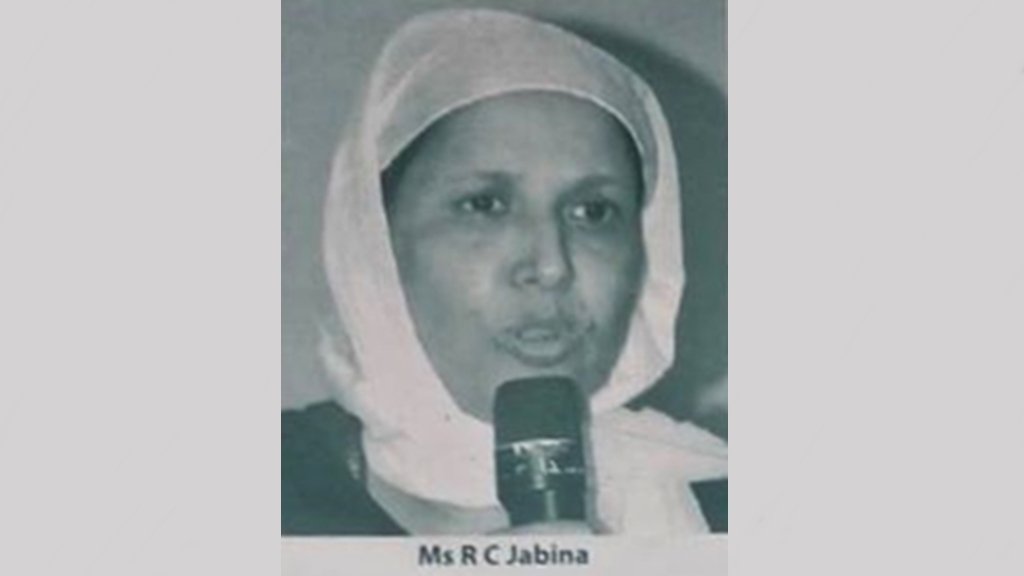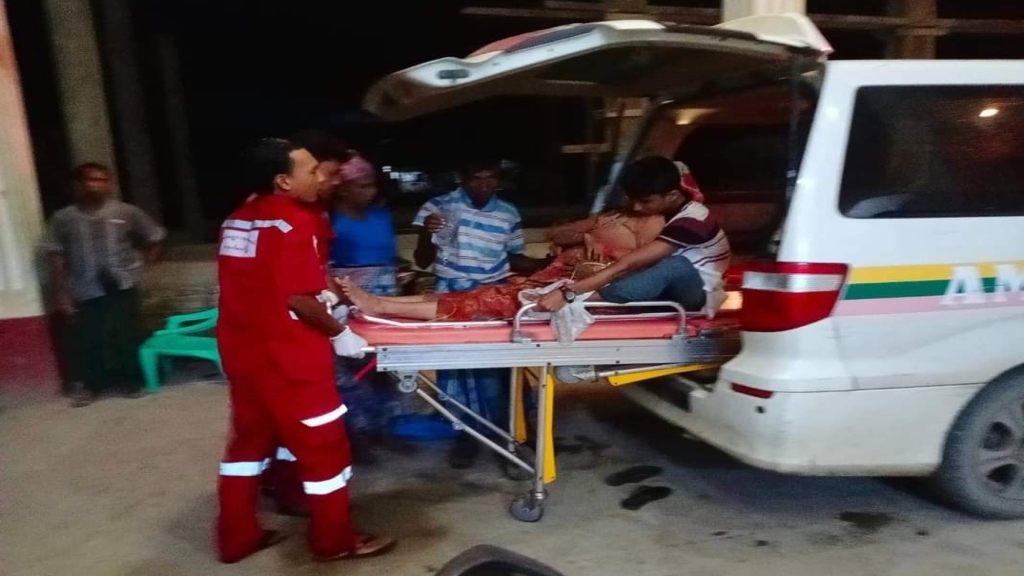
Sayama RC Jabina: An Untold Rohingya Idol
- 08/03/2020
- 0
By Mayyu Ali
On October 12, 1954, RC Jabina was born to Daw Hazera Khatun and U Hamidur Rahman, Junior Assistant Teacher, in Sikdar Para, now Myoma Kanyin Tan village of Maungdaw Township in Myanmar’s Rakhine State, also known as Arakan. She was the first child of 11 siblings. She was raised by her highly educated parents in downtown Maungdaw. She was well-natured and disciplined from a very young age.
“As a child, she was always obedient to our parents. She never missed her classes” recalls the 56-year-old Sayama (a honorific term for a school madam in Burmese) Ruksana, one of RC Jabina’s younger sisters.
In 1975, RC Jabina passed matriculation from Maungdaw Government High School. In 1979, she completed her bachelor’s degree in Chemistry from Rangoon University. Following her dreams, she went on to become a Senior Assistant Teacher (SAT), serving in the Basic Education Department in Myanmar from November 1979 to 2002. During her tenure, she served in several high schools, such as Taung Bazar, Aley Than Kyaw, Buthidaung and Maungdaw High School. In 1990, she finished her education degree (B. Ed) through an Education Ministry correspondence course.
During her tenure, RC Jabina was widely known as Sayama RC. She was highly respected not only by Rohingya but also Rakhine students in Maungdaw Township. She was often invited to deliver speeches on formal occasions. She was widely admired and highly disciplined. She was the foundation that paved the path for many successful Rohingya and Rakhine students, a star that never goes dim.
“She’s the first female Rohingya SAT teacher in Arakan. She always takes care of her students and guides them well, like a hen for chicks” says the 68-year old Mohammed Ullah, a retired SAT teacher who worked with Sayama RC at Maungdaw High School.
“She’s so pious and never missed prayers. What I like best in her is she always encourages her students to maintain their culture and traditions”, Ullah continues.
On December 11, 1981, Sayama RC married Aman Ullah, a retired Senior Assistant Teacher, former General Secretary of the Arakan Rohingya National Organization (ARNO), freelance writer and researcher on Rohingya, Arakan and Burma. Sayama RC and Saya Aman got two children; Naing Win Tun (aka Azad Mohammed Nojumul Amin) and Zin Mar Oo (aka Samera).
On January 6, 2010 at 11:45 AM, Sayama RC Jabina died of liver disease at the age of 52. Many people inside Myanmar and abroad expressed their deep sorrow at her passing. On that day at 6 PM, the deceased’s soul was buried at the graveyard in Chittagong, Bangladesh. Hundreds of people paid their last respects to her.
Sayama RC left her beloved husband Saya Aman Ullah, her son Naing Win Tun and daughter Zin Mar Oo. Her departure was a great loss for the Rohingya community, especially in education, women’s empowerment and other social activities.
She dedicated her life to education, empowering poor girls and students while she was serving in Maungdaw High School, spending most of her life away from her family members while working for the Basic Education Department in various high schools in Maungdaw and Buthidaung townships.
“Sayama used to say in class; Girls, choose between your jewelry or character. If you choose jewelry, don’t come to my class tomorrow. If you choose character, you are welcome in my class. The real jewel is your good character,” recalls Haikal Mansor, one of Sayama’s closest pupils.
“Sayama had a great version of our culture and traditions. She always empowered girls and educated her daughter first, breaking cultural barriers of Rohingya society at that time,” says Mohammed Omar, another pupil.
Sayama RC herself lived these values and principles, which have been transmitted to many of her students. She had wisdom beyond her age. She had vision beyond the horizon. She had compassion beyond what a heart can feel.
“Her version was very clear. She always says that we can move forwards only if we are educated,” recalls the 67-year-old Ye Lwin, aka Mohammed Eliyas, a retired Associate Professor of history at Hpa-an University.
Today, Sayama’s name resonates with peace, inclusiveness, respect and kindness. She introduced a great legacy of women’s empowerment by educating girls in the Rohingya community. She made valuable contributions to maintaining Rohingya culture and traditions. She is regarded as the first Rohingya icon of women’s empowerment in the Rohingya community.
She was a spiritual lady, versed in Islamic and Buddhist studies. She was often approached and consulted by both Muslim and Buddhist scholars. She was a bridge between the two communities. Even today her name is used as an example by some parents to encourage their daughters to attain an education like her.
“Sayama may not be in this world [any longer]. We are the worlds she has moulded and built, radiating to every corner of this world,” says Haikal Mansor.
Today, on this International Women’s Day, I, the author, would like to offer my highest regard to Sayama RC Jabina as the first Rohingya beacon of women’s empowerment in the Rohingya community.
We miss you, Sayama RC Jabina.
Additional contributions by Haikal Mansor
About the Author;
Mayyu Ali is the author of EXODUS. He wrote Op-eds for CNN, Financial Times, The Independent, Al Jazeera, Dhaka Tribune and Asia Times.







